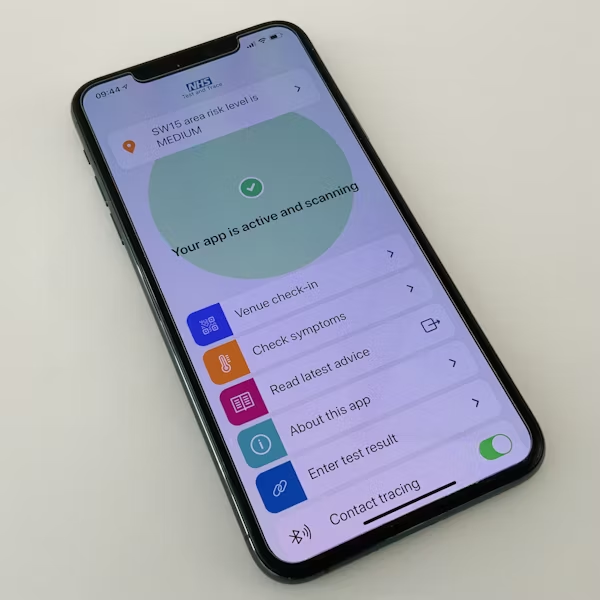Introduction
So, you’re ready to dive into the world of freelancing in 2025? Whether you’re looking to make a little side income or turn freelancing into a full-time career, choosing the right platform is your first big step.
But here’s the problem — there are so many options, it’s easy to feel overwhelmed. Some platforms are saturated, others have tricky payment systems, and a few are just plain scammy.
Don’t worry. We’ve done the hard research for you. This guide covers the best freelance platforms for total beginners, explaining what makes each one unique, and how to start earning safely.
Why Freelancing is Booming in 2025
Freelancing isn’t just a trend — it’s becoming the new normal. Thanks to AI automation, remote-first companies, and flexible work arrangements, more people than ever are choosing to work for themselves.
According to recent reports:
- Over 47% of Gen Z workers are freelancing in some capacity.
- Freelancers earned over $1.5 trillion globally in 2024, and it’s only growing.
- Platforms now offer better protections, faster payments, and more tools for newbies.
Bottom line? There’s never been a better time to start freelancing.
What to Look for in a Freelance Platform
Before we jump into the list, here’s what really matters:
- Low barrier to entry: You want to start without a long resume.
- Secure payments: Always work through platforms with escrow or verified payment systems.
- Easy-to-navigate dashboard: You shouldn’t need a tech degree to apply for jobs.
- Active client base: The more job postings, the better.
- Fair fees: Some platforms take up to 20% — others take nothing at all.
Let’s break it down.
1. Fiverr – The Beginner’s Paradise
Perfect for: Creatives, writers, voice actors, video editors, and small gigs.
Fiverr flips the script on freelancing. Instead of applying to jobs, you create a service (“gig”) and let clients come to you. It’s low-stress, easy to start, and ideal for beginners.
Pros:
- Create gigs in minutes
- Great for building reviews fast
- Active community with lots of buyers
Cons:
- 20% platform fee
- Tough competition in some categories
Pro Tip: Focus on niche gigs to stand out. For example, “Resume editing for marketing professionals” or “Podcast intro voiceover with effects.”
2. Upwork – For Serious Freelance Careers
Perfect for: Writers, developers, marketers, and virtual assistants.
Upwork is one of the largest freelance platforms in the world. With its vast client pool and a wide range of projects, it’s ideal if you want to take freelancing seriously.
Pros:
- Thousands of job listings daily
- Long-term clients and contracts
- Useful certifications and learning tools
Cons:
- Steep learning curve
- 10–20% fees based on earnings
Pro Tip: Take the time to write custom proposals and apply only to jobs you’re 100% qualified for.
3. Freelancer.com – Build Experience Fast
Perfect for: Beginners looking for portfolio material.
This platform offers a mix of traditional freelance jobs and contests, where multiple freelancers submit work and the best one gets paid.
Pros:
- Contests = fast portfolio building
- Huge variety of clients globally
- Safe payment via escrow
Cons:
- Very competitive
- Some fees can be confusing
Pro Tip: Try a few contests in your niche to showcase your talent and attract private job offers.
4. PeoplePerHour – A Balanced Option for Creatives
Perfect for: Designers, marketers, and writers.
This UK-based platform is growing globally thanks to its flexibility. You can create offers (like Fiverr) or bid for jobs (like Upwork).
Pros:
- Less crowded than bigger platforms
- Easy for beginners to win small jobs
- Strong buyer protection
Cons:
- May not have as many listings outside the UK
- Fees vary by income level
5. Guru – Trusted and Transparent
Perfect for: Consultants, tech experts, business freelancers.
Guru has been around since 1998 and offers a clean, professional platform with built-in collaboration tools.
Pros:
- Low fees (as low as 5%)
- Strong payment security via SafePay
- Great for team projects
Cons:
- Less job variety than Upwork
- Slower account approval
6. Contra – Build Your Personal Brand
Perfect for: Creatives, developers, consultants.
Contra is modern, minimal, and commission-free. Instead of fees, they offer paid add-ons like premium portfolios. It’s built for freelancers who want to look like pros right out of the gate.
Pros:
- 0% commission (you keep everything!)
- Portfolio-focused profiles
- Built-in invoicing and contracts
Cons:
- Still gaining traction
- Smaller job marketplace
7. Jobbers.io – Keep 100% of Your Income
Perfect for: Developers, marketers, remote workers.
Jobbers.io is a rising star. It charges no commissions, lets you connect directly with clients, and is geared toward professionals and beginners alike.
Pros:
- No fees at all!
- Simple interface
- Active remote job board
Cons:
- Fewer job postings compared to Fiverr or Upwork
8. Toptal – Aim High (With Experience)
Perfect for: Developers, designers, finance experts with experience.
Toptal only accepts the top 3% of applicants, so it’s not ideal for total beginners—but if you’ve got some skills, it’s worth the effort.
Pros:
- High-paying clients
- Long-term gigs
- Mentorship and training through Toptal Rise
Cons:
- Tough screening process
- Not suitable for newbies
9. FlexJobs – Curated Remote Opportunities
Perfect for: Remote job seekers, stay-at-home parents, career changers.
Unlike other freelance sites, FlexJobs is subscription-based but offers vetted, scam-free listings from top companies like Apple, Dell, and Salesforce.
Pros:
- High-quality, verified listings
- Remote jobs and freelance gigs
- Career coaching included
Cons:
- Paid membership required (around $10/month)
10. 99designs – For Designers Only
Perfect for: Graphic designers, illustrators, brand creators.
If you’re a designer, 99designs is a highly respected platform. It works through client requests and design contests.
Pros:
- High-paying design gigs
- Creative challenges keep you motivated
Cons:
- Only for design-related work
- No free work guarantee in contests
11. SolidGigs – Find Clients Fast
Perfect for: Freelancers with limited time.
SolidGigs is not a freelance marketplace — it’s a job lead service. They send you handpicked freelance gigs every week.
Pros:
- Saves hours of job searching
- Focused on quality gigs
- Built for freelancers
Cons:
- Monthly fee (starts at $19)
- Not ideal for absolute beginners
Tips for Succeeding on Any Freelance Platform
- Create a killer profile: Make it specific, friendly, and packed with value.
- Nail your niche: Don’t say “I do everything.” Be the go-to for one thing.
- Use good visuals: Thumbnails, logos, and portfolio images matter more than you think.
- Ask for reviews: Politely request feedback after each job.
- Stay consistent: Log in daily, apply regularly, and update your profile.
Common Mistakes Beginners Should Avoid
- Underpricing yourself: It hurts your credibility and income.
- Ignoring client instructions: Always read the job post carefully.
- Spamming proposals: Personalize every application.
- Working outside the platform: You lose payment protection — don’t risk it!
Conclusion
There’s no one-size-fits-all freelancing platform. The best one for you depends on your skills, goals, and preferred work style. Whether you’re starting with small gigs on Fiverr or gunning for elite clients on Toptal, the key is to start somewhere.
Freelancing offers freedom, income, and the chance to build a life on your terms. Ready to get started?
FAQs
1. Which freelance platform is best for beginners with no experience?
Fiverr and Freelancer.com are great for starting out with no experience. They’re easy to join and don’t require previous work.
2. Can I join multiple platforms at once?
Yes! Many freelancers use two or three platforms to increase their chances of landing gigs.
3. How much can a beginner freelancer earn?
It varies. Some earn $100–$500/month, while others hit $1,000+ in a few months with consistent effort.
4. Are there any free freelance platforms?
Yes! Fiverr, Upwork, Freelancer, PeoplePerHour, and Guru are free to join, but take commissions.
5. How do I avoid scams as a freelancer?
Always work through the platform, never accept off-site payments, and avoid clients who rush you without clear job details.




